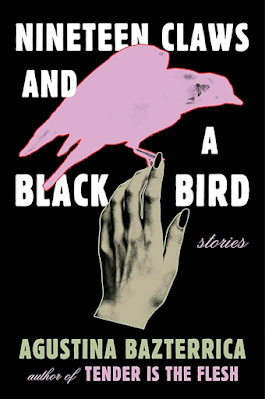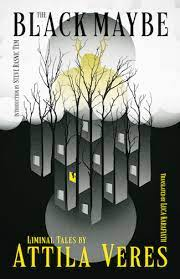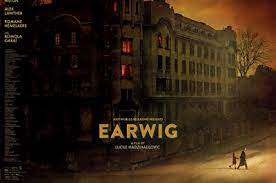From Agustina Bazterrica, the author of the new classic Tender is the Flesh, comes her new short story collection, Nineteen Claws and a Black Bird. At turns playfully experimental and at times seeking to refine classic genre tropes, this book succeeds in fulfilling the promise of Tender is the Flesh. Taking inspiration from such masters of the short story as Jackson, Ligotti, Tuttle, and Borges, this is a heady stew of delirium and darkness. Nineteen Claws and a Black Bird is continuing the trend of new translations of amazing foreign horror, introducing English-speaking countries to all kinds of new and innovative writing. From Valancourt’s steady streams of translations of essential collections like Swedish Cults and The Black Maybe, to other collections getting critical acclaim like Bora Chung's Cursed Bunny, we are seeing a golden era of translations of the cutting edge of horror and dark literature. There are clear influences on this new era of world horror, from cinema, you can see the influence of films like Anti-Christ, Under the Skin, and Kairo. The long shadow of masters of horror literature such as Ramsey Campbell, Robert Aickman, and H.P. Lovecraft is also felt. But make no mistake, these new works are speaking on our new realities and are saying things that are so needed right now. I feel we are seeing the start of a new era of horror literature.
Agustina’s work is poetic and lush. It is a delight to read her prose. And the gorgeousness of her work only makes the deep dark hole you find yourself in at the end of one of her stories even more unsettling. Her work recalls the intense subjective tales of Borges, where instead of his making the everyday and normal into something divine or otherworldly, Agustina makes the everyday malignant and corrupting. The use of confusion and mystery, and the undertone of a sinister darkness or malignant influence is one of the macabre pleasures to be found in her writing.
Tender is the Flesh was a book that reveled in the corrupt nature of humanity. We devour each other both physically and emotionally. The things we mistake for tenderness and love are actually hunger and lust. Social constructs hide the animalistic nature of ourselves. Now with Nineteen Claws and a Black Bird, her new collection of short stories, Agustina has not brightened her view of humanity, instead, she goes further, and explores the darkness in all its facets. From mind-bending surrealist tales to inner explorations of a diseased human psyche, each story in this collection is varied and unique. Her palette is wide and the places she brings the reader are different maps, outlining the wounds inflicted on her characters. Her examinations of human cruelty recall Jackson, and her revealing the corrupting darkness that lies at the heart of humanity recalls Ligotti. But in terms of prose style and practice, she recalls Borges and Calvino. The reader is left confused yet fascinated at the end of one of her stories. And the mystery calls us to go further.
The first story in the book, A Light, Swift, and Monsterous Sound, absolutely makes a statement as the first tale and is one of those rare stories that can be said to be something only the author could have written. Unique and mind-bending, there is really nothing else like this tale. I also really loved Roberto, a surreal tale of genitals, strange physiologies, and what may lay hidden underneath our clothes. When I reached her story Elena-Marie Sandoz in the collection is when I was convinced this collection was a masterpiece. A bleak tale of identity in crises, this one stands alongside such masters as Ligotti and Borges with its oroborosian logic. And the final tale in the collection, The Solitary Ones, reads like a classic of horror fiction, probably the most straightforward horror tale in the collection, but in a collection this weird and experimental, the more traditional stance this tale takes reads seems challenging, especially coming at the end of the stories.
Agustina Bazterrica is a groundbreaking new voice in literature. Her novel Tender is the Flesh deserves to be seen as one of the all-time great dystopian novels, and her collection Nineteen Claws and a Black Bird deserves to be recognized as one of the great horror collections of our time. Essential, innovative, deeply personal, and stunningly poetic. Nineteen Claws and a Black Bird is a must-read. The comparisons I have made to her work and Ligotti, Borges, Orwell, and Jackson are deserved. With only two books of hers in English translation, she has already cemented her place among the very best of literature. More, more...















